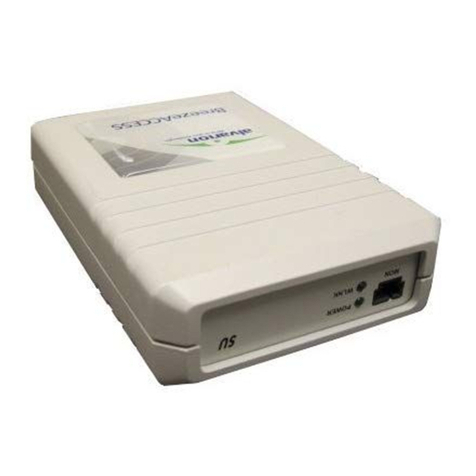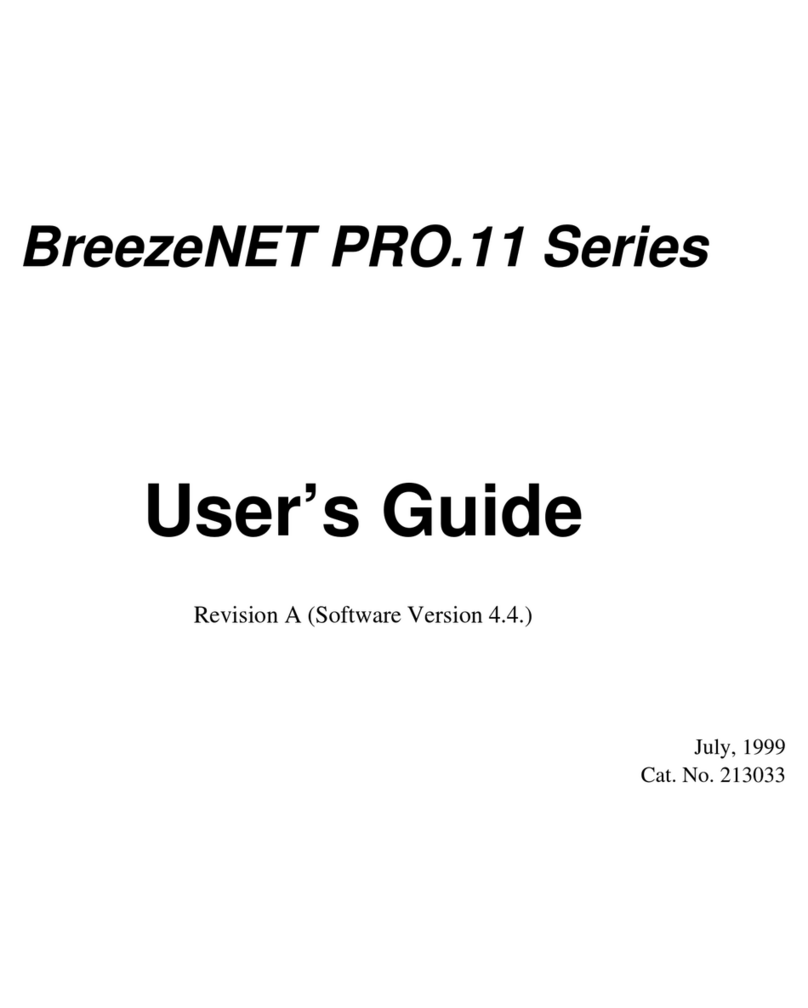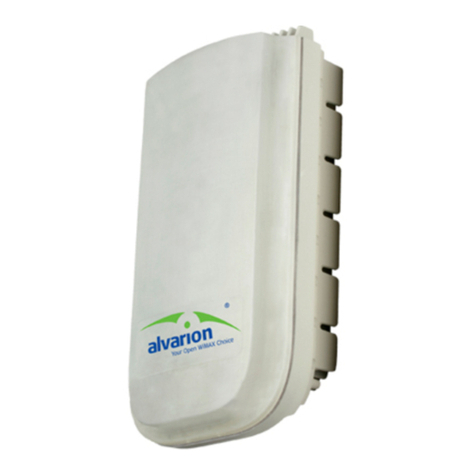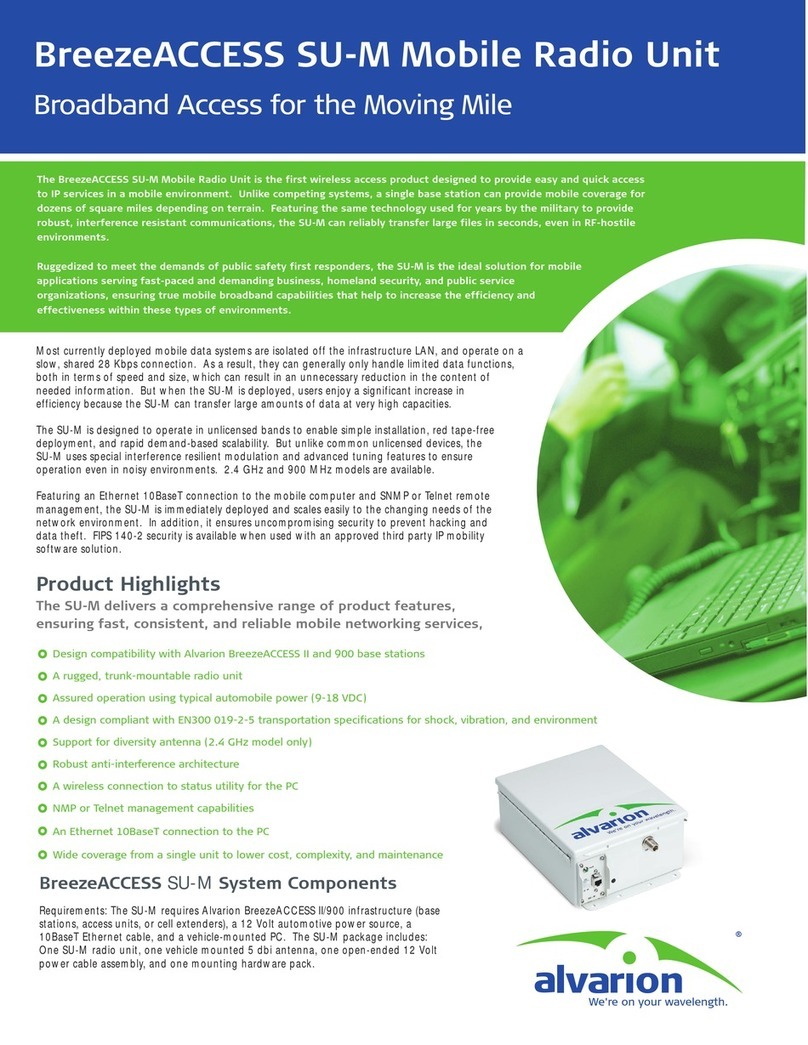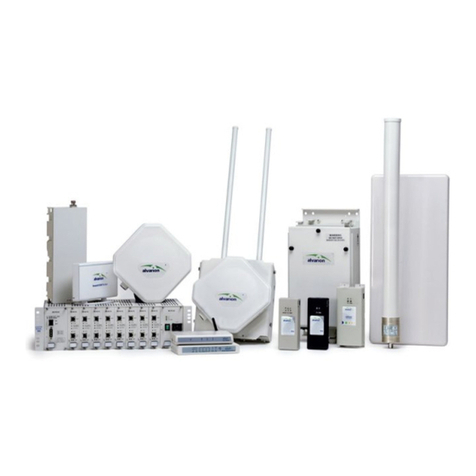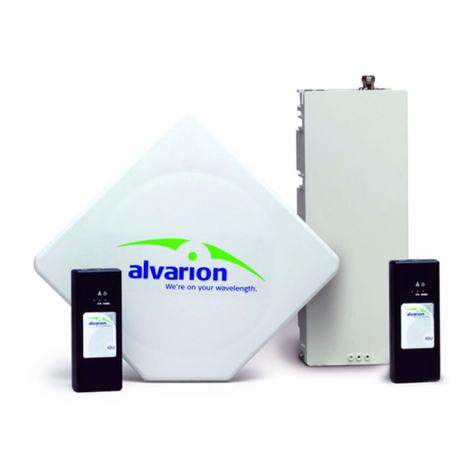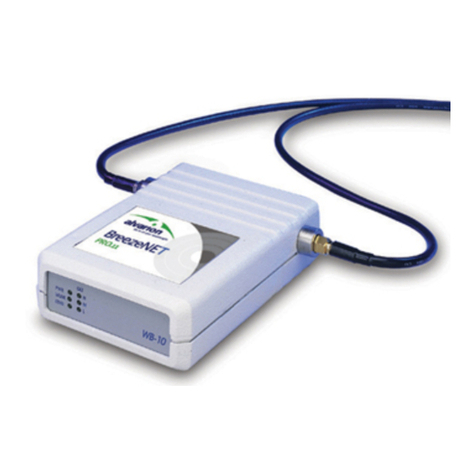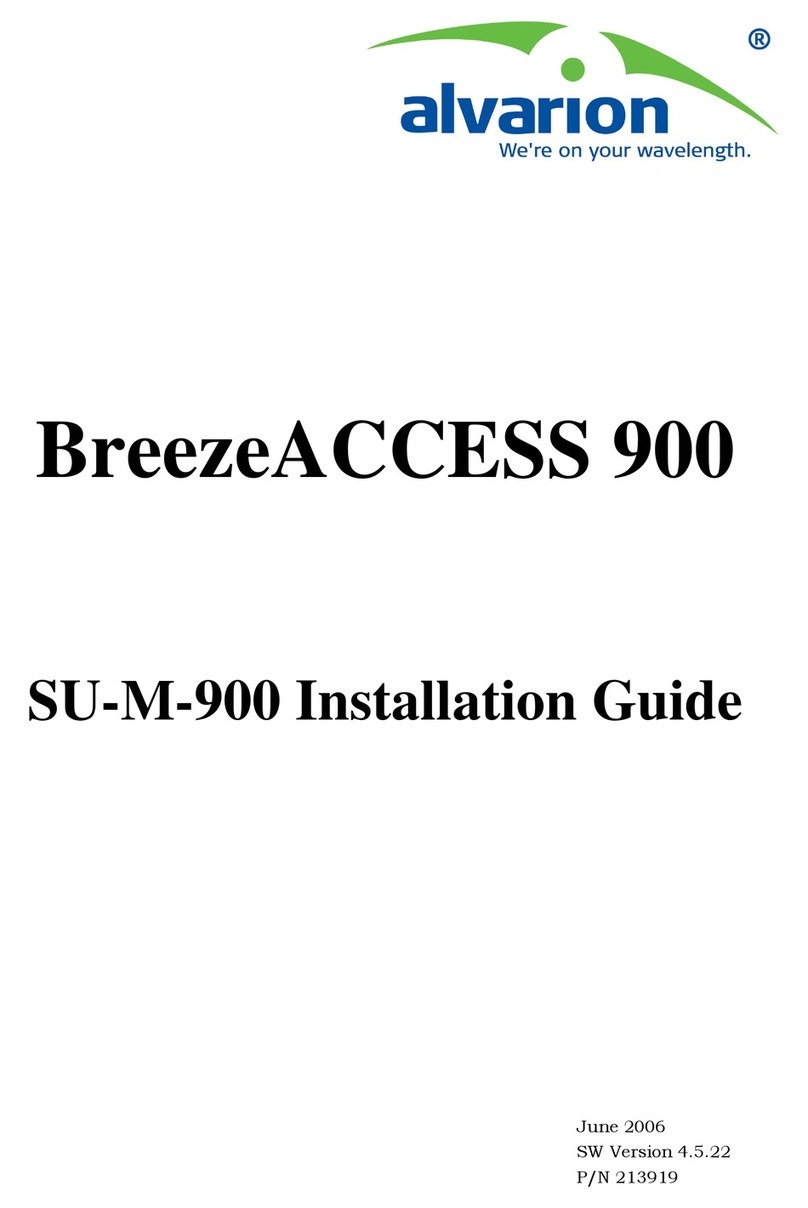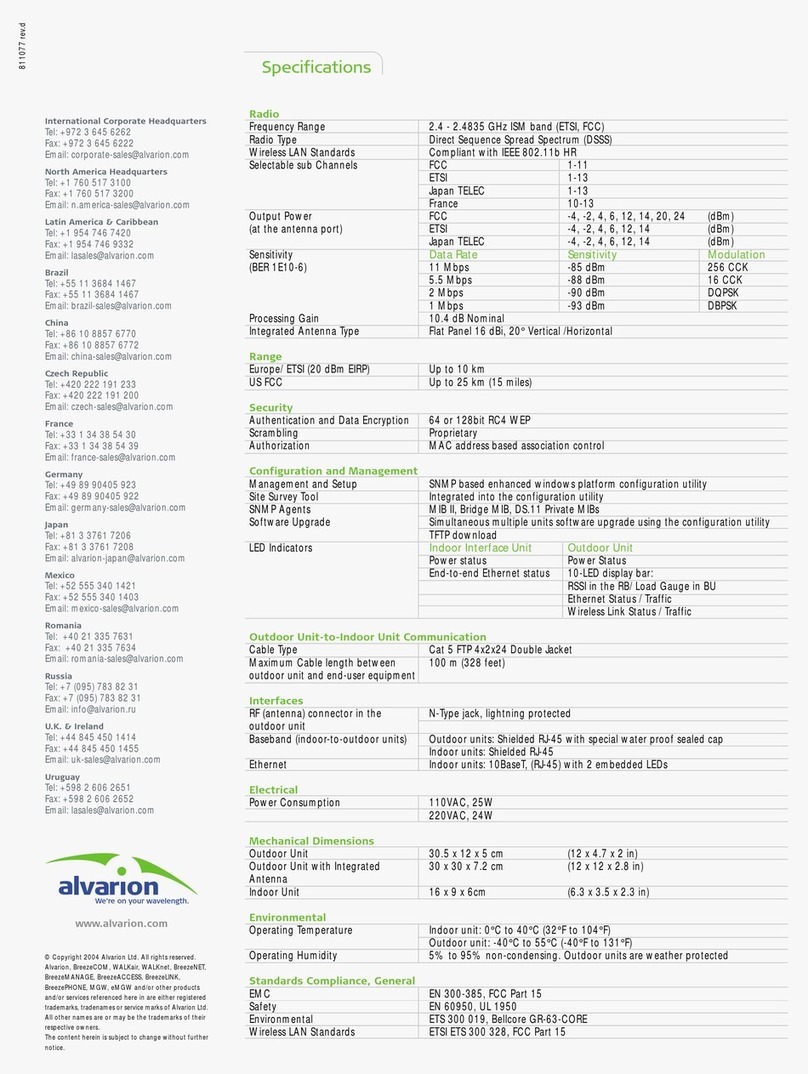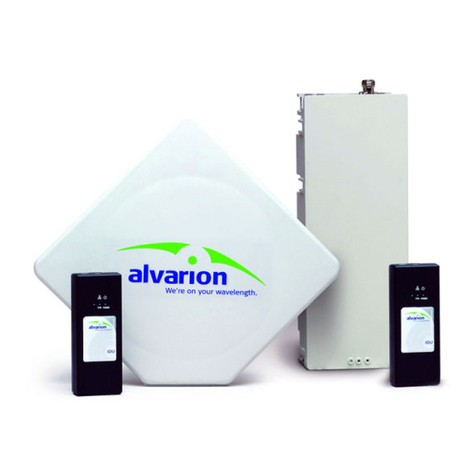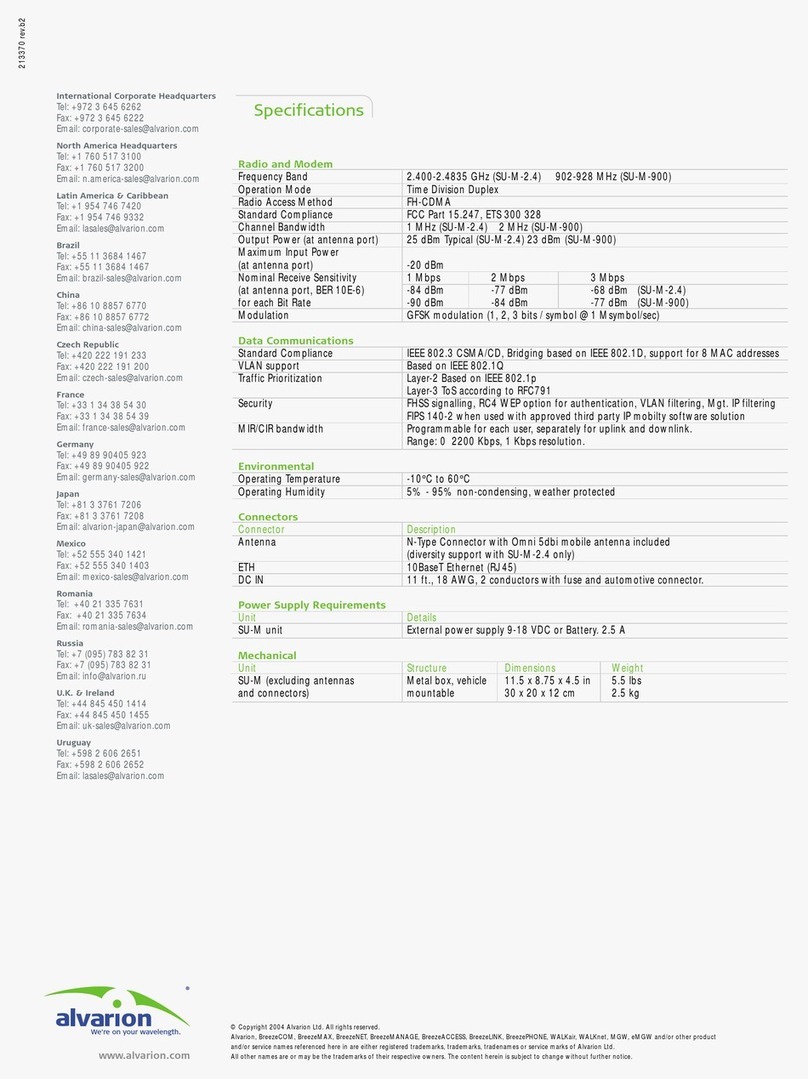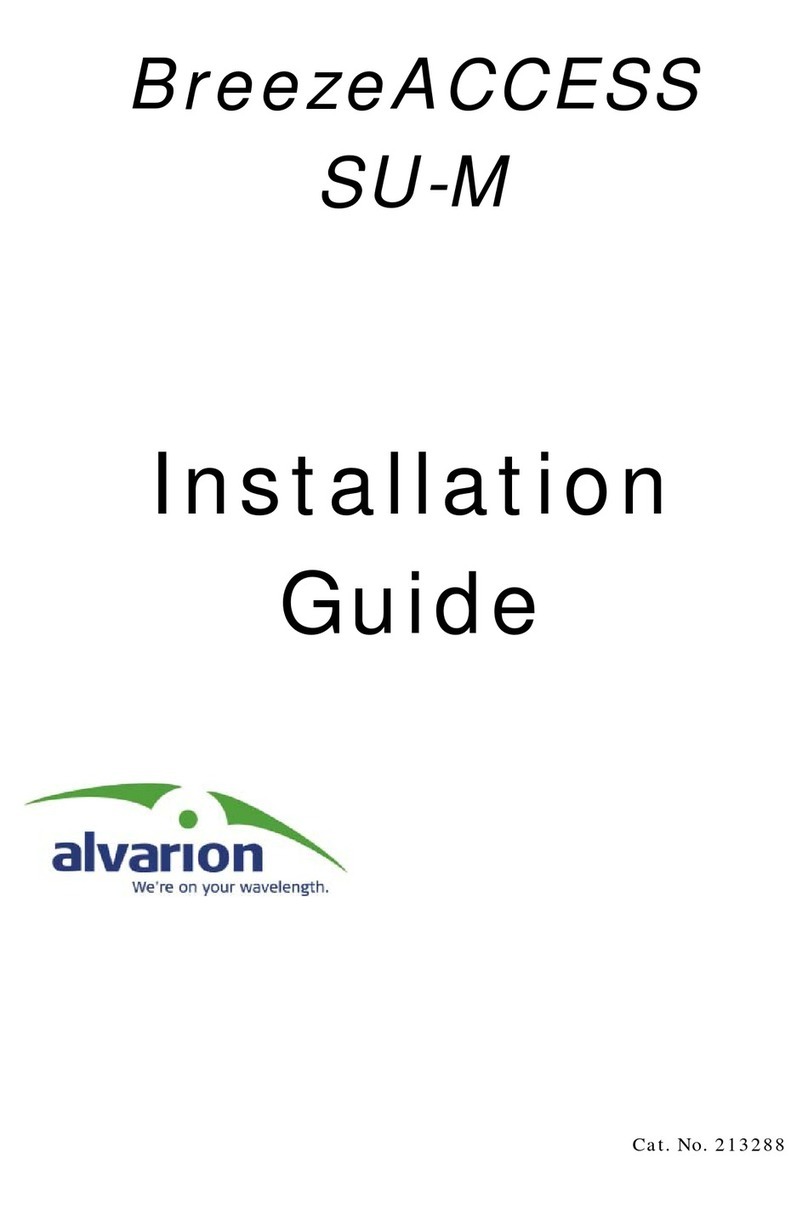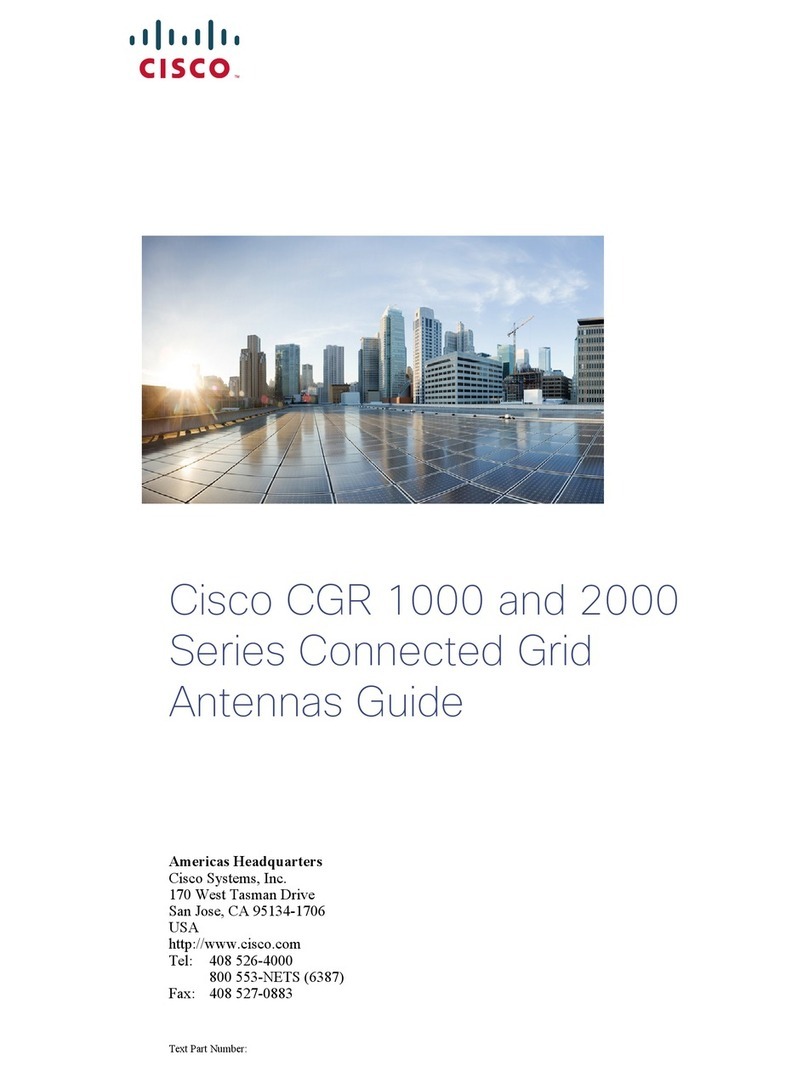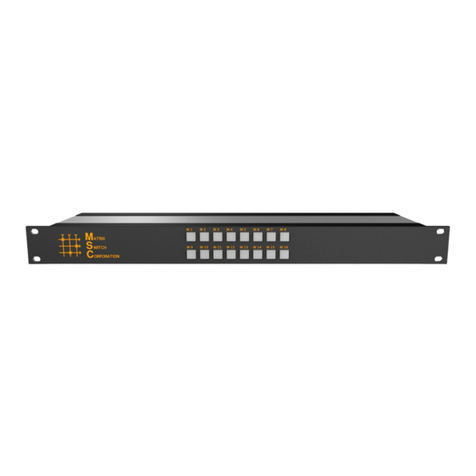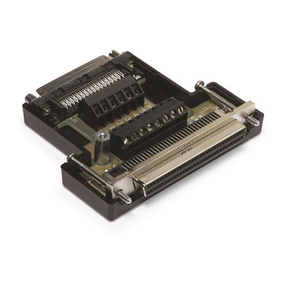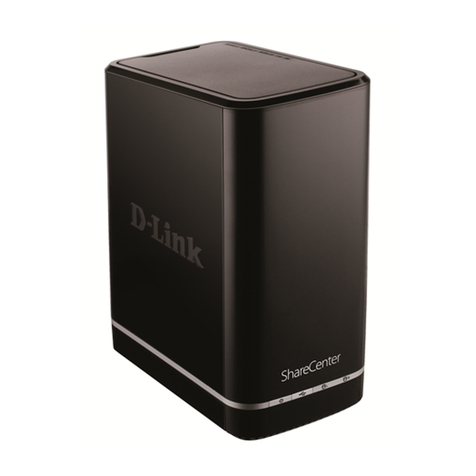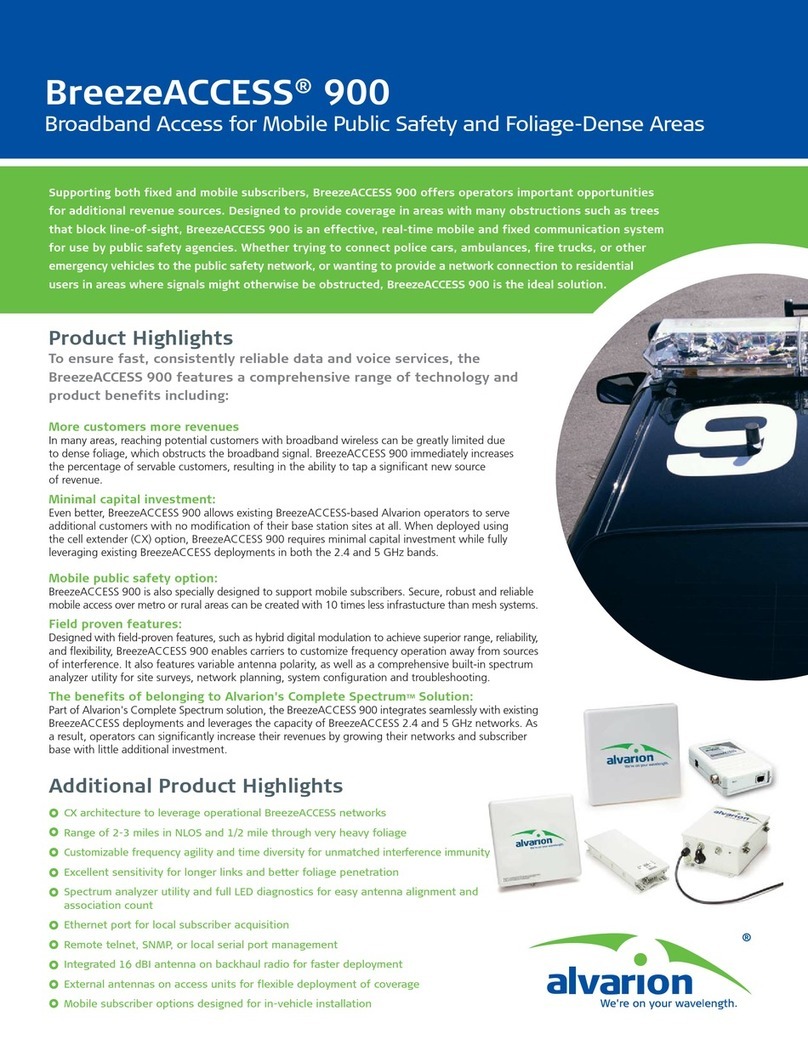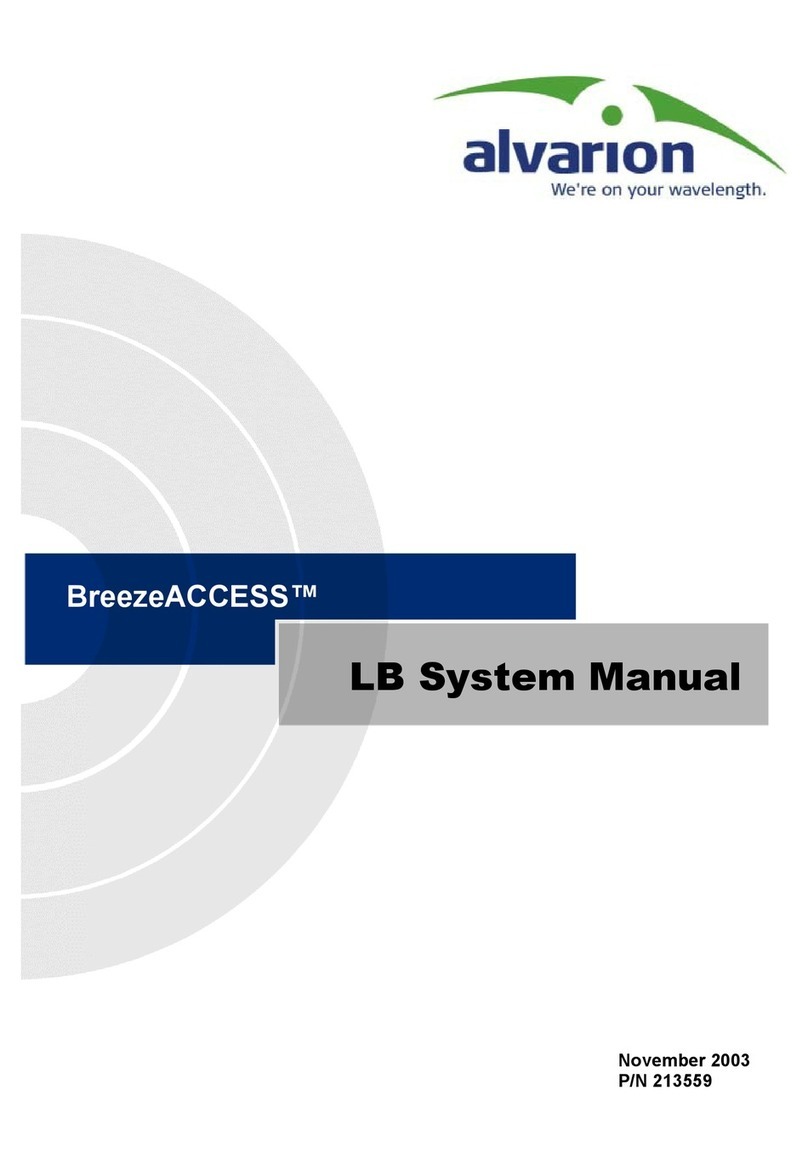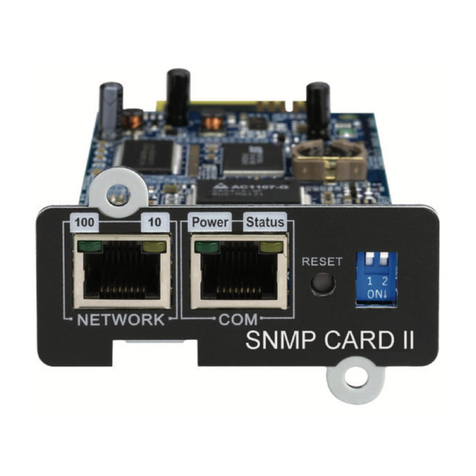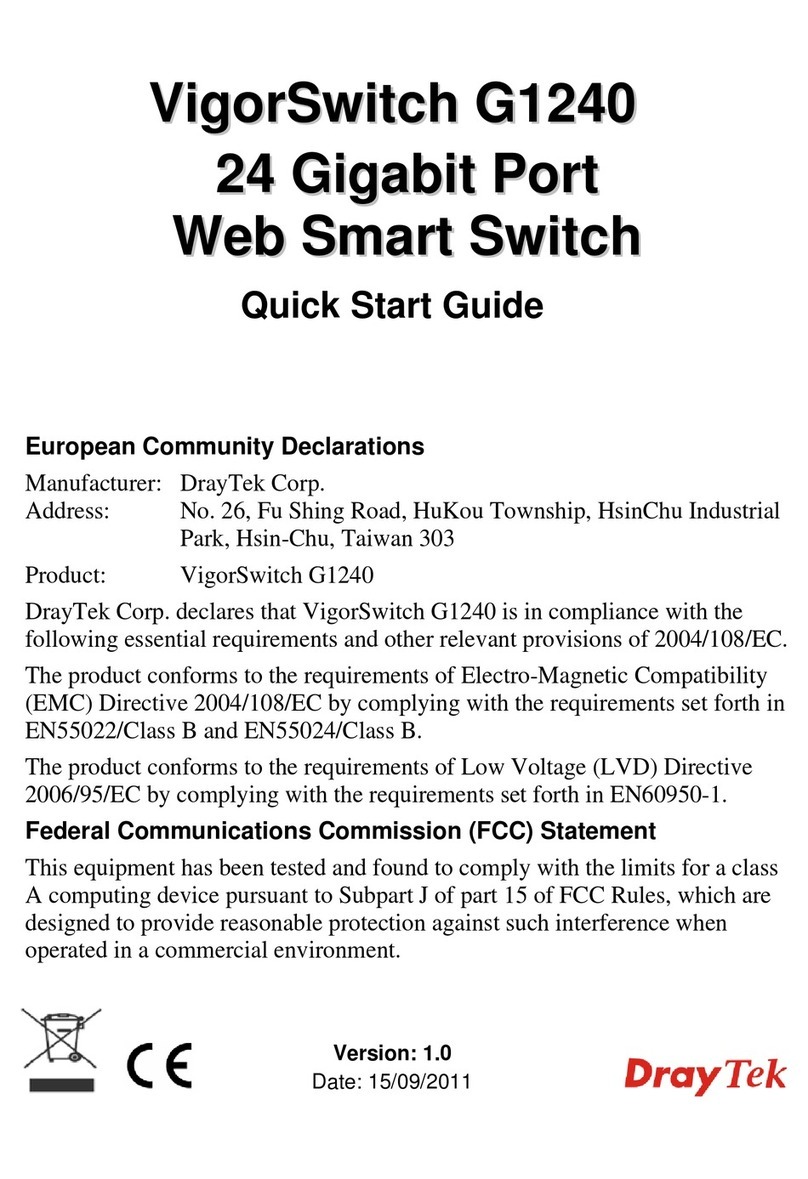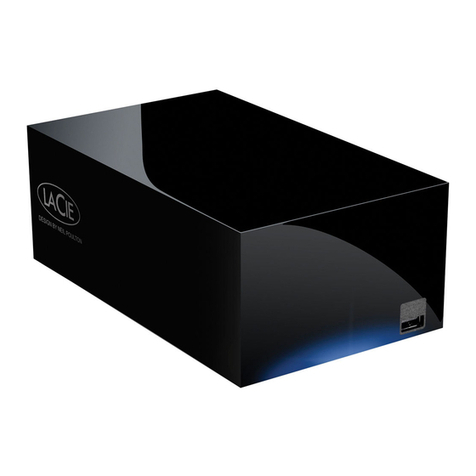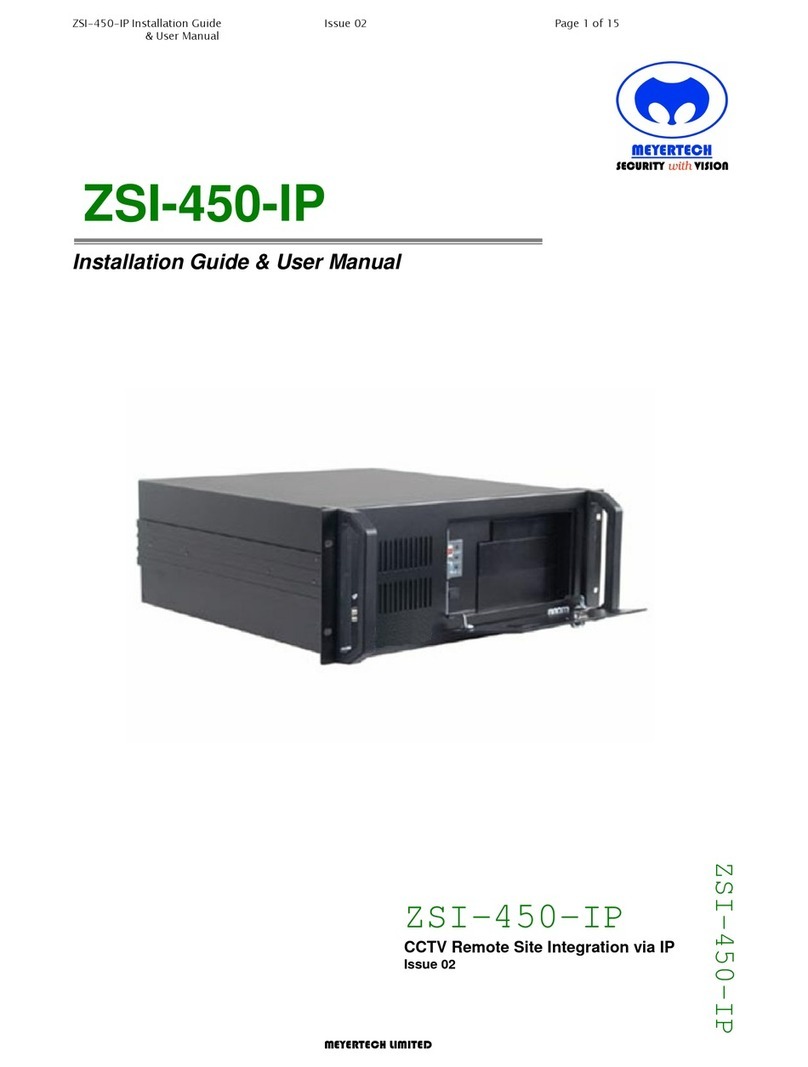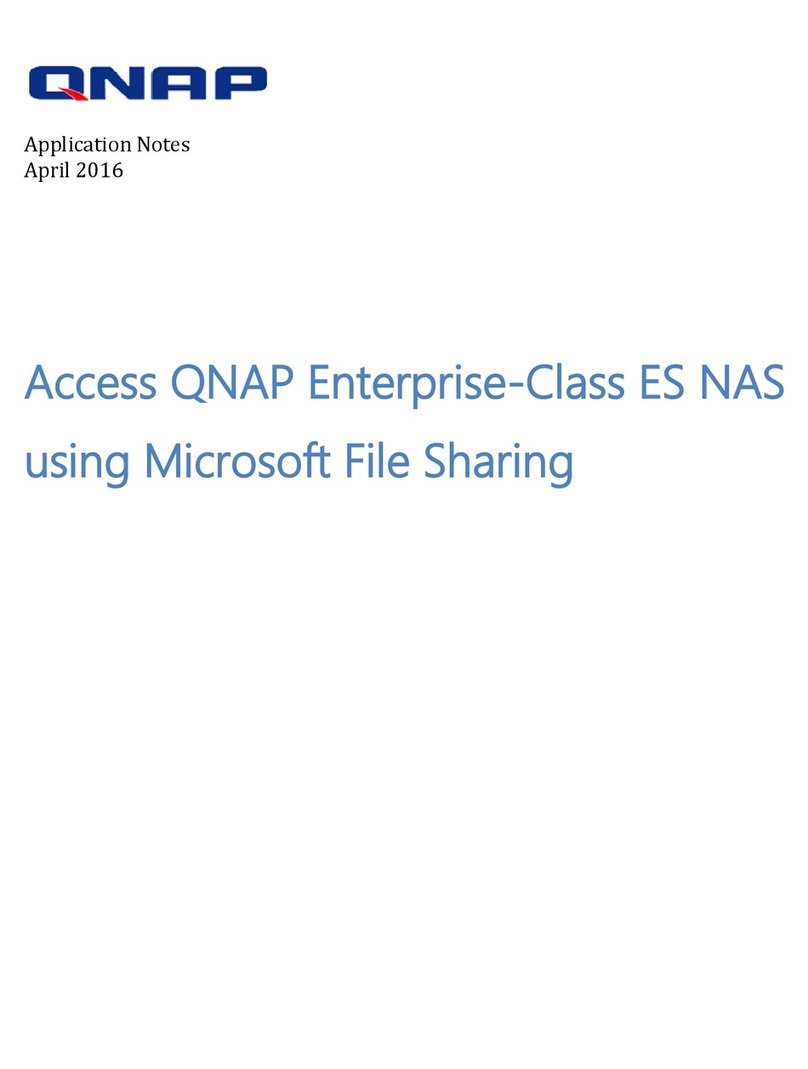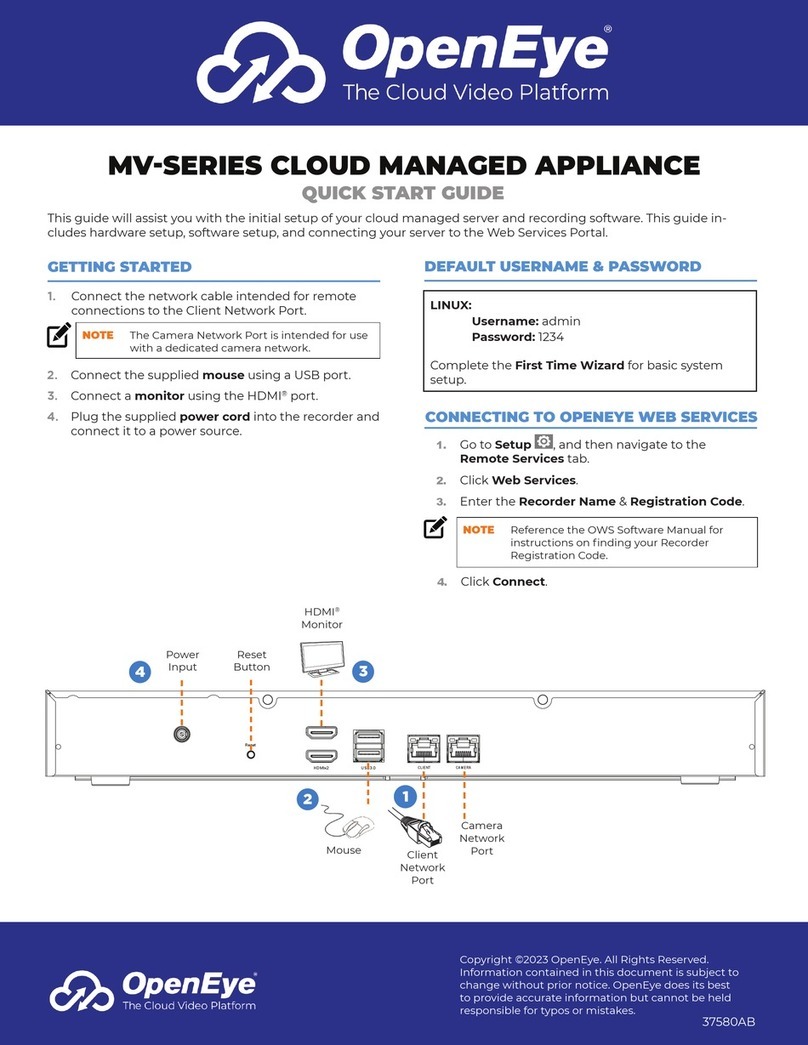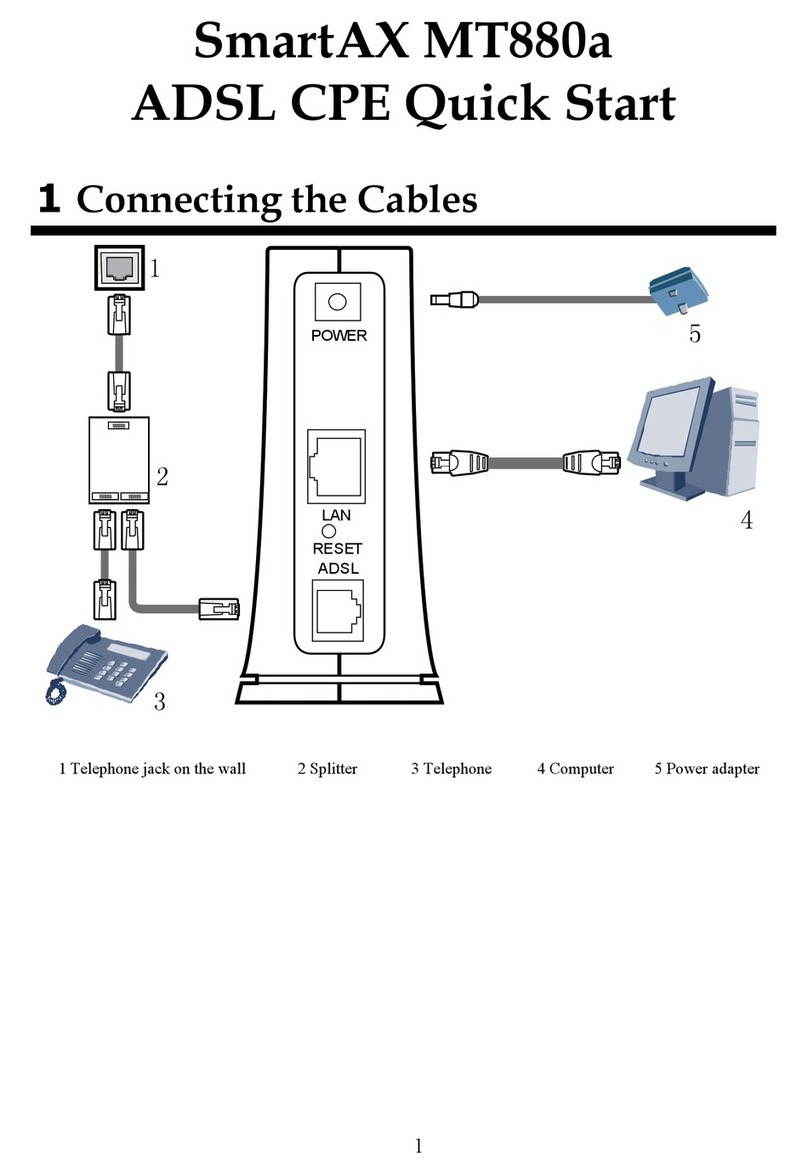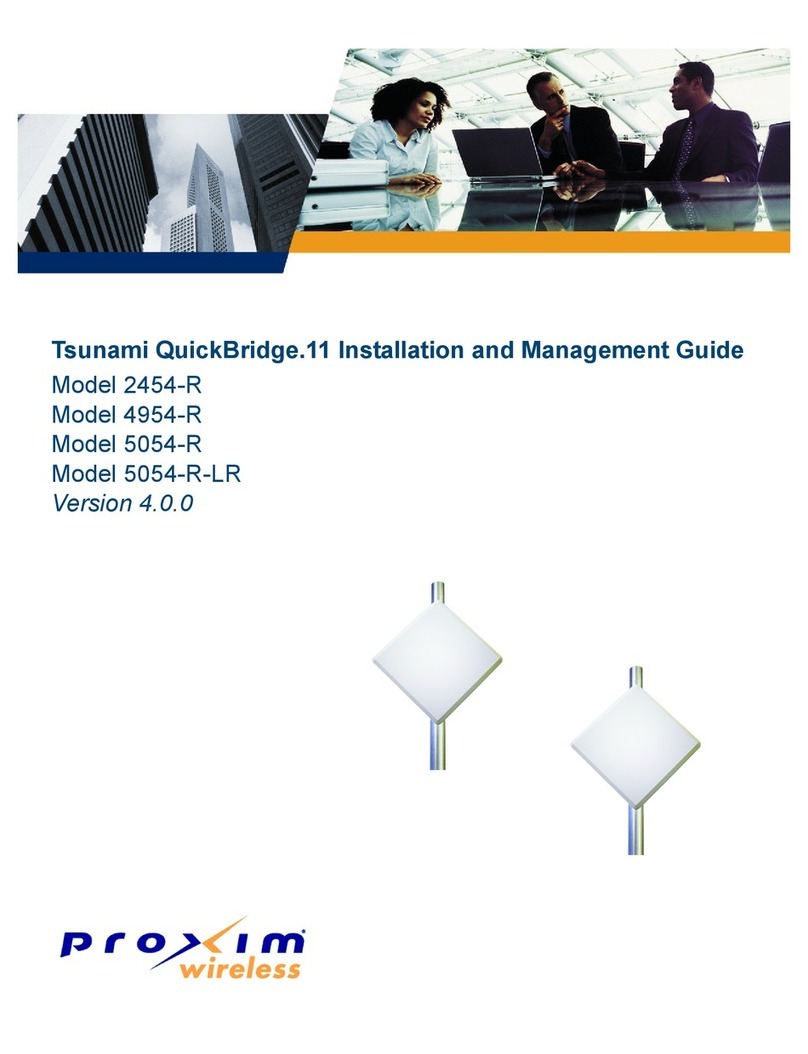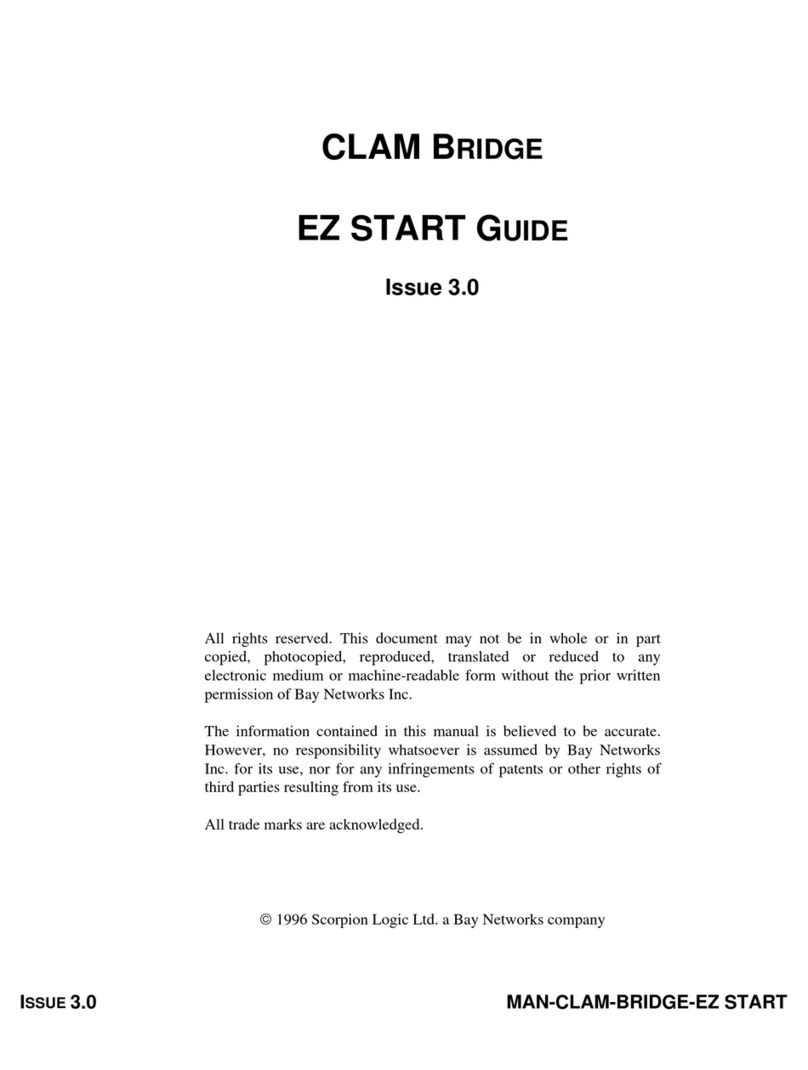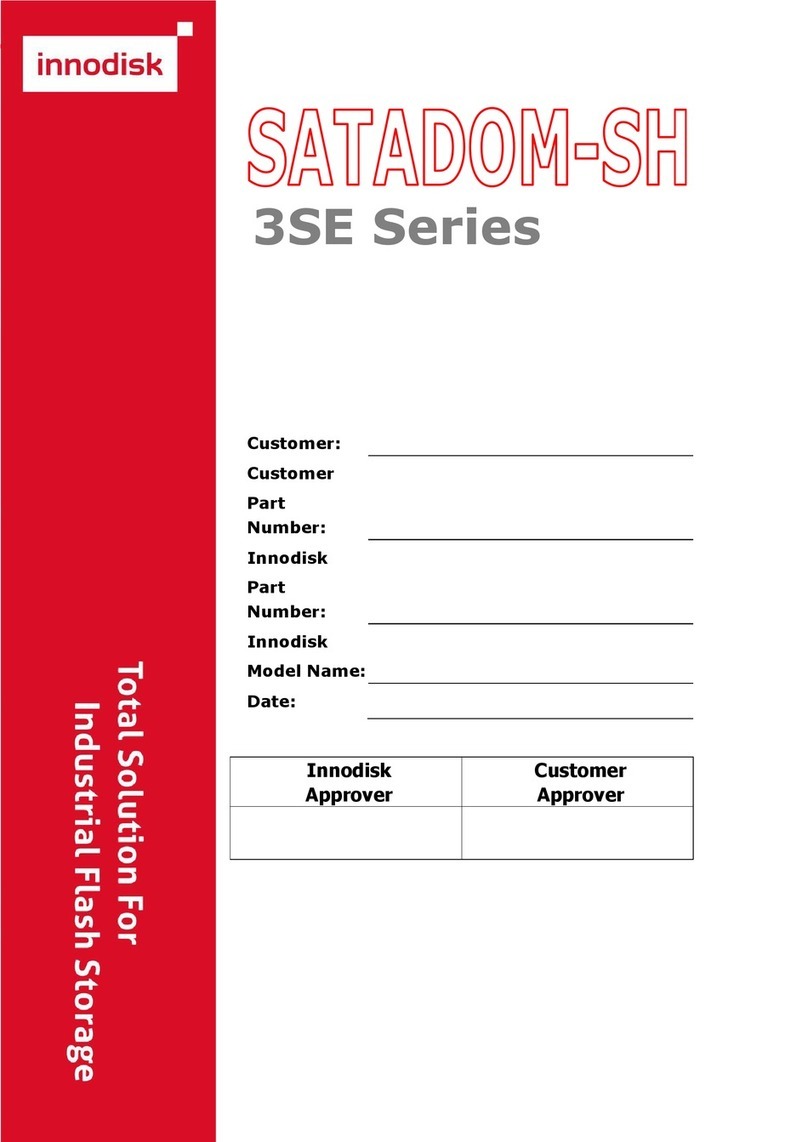
Cost effective alternative to leased lines with fast ROI
Optimal cost/performance ratio: highly cost efficient
solution
Robust outdoor architecture: ensures unprecedented
range and reliability
Superior OFDM radio: enables Non Line Of Sight (NLOS)
capabilities in dense urban environments
High throughput: up to 54 Mbps
Turbo mode for improved performance
Variety of frequencies: in the 5 GHz band
Non-compromising Security: AES 128 bit or WEP 128
bit key encryption (selectable)
Easy to install and adjust: full LED diagnostics, 10-LED
bar display for antenna alignment, user-friendly
management tool application
Simple to upgrade: update software and reconfigure
settings over the air
Built-in remote diagnostics: minimize maintenance
costs and downtime
Supports dynamic frequency selection (DFS) and
automatic transmit power control (ATPC)
Automatic clear channel selection (ACCS): Built-in
spectrum analyzer that detects noise characteristics
per channel with an option for automatic clearest
channel selection
Highly Secure Air Interface
BreezeNET B also supports security sensitive applications through
the optional use of authentication and data encryption utilizing
AES and WEP algorithm options with 128 bit keys. The system
also supports VLAN at connections based on IEEE 802.1Q,
facilitating secure operation and virtual private networking (VPN)
services and enabling remote employees or offices to conveniently
access their enterprise networks.
Product Variations
BreezeNET B is available in two main variations, BreezeNET B14
and BreezeNET B28, with throughput as the main difference in
the two products. Each is available with a 21dBi integrated
antenna or with a standard RF connector supporting detached
external antennas (in which case it can be used with either a 23
or 28 dBi flat panel antenna). With two BreezeNET B products,
users can achieve an optimal cost/performance solution in every
deployment.
Built to Last
All BreezeNET B products consist of robust outdoor units that
are built to perform in even the most difficult climates and
withstand the harshest weather conditions. Outdoor units typically
maintain a significantly higher link budget than their indoor
counterparts and therefore achieve higher performance and
availability. Unlike point-to-point indoor units, which employ RF
cables to run signals to rooftop antennas, outdoor units utilize
a simple CAT-5 connection, which enables a significant reduction
in the loss of power/DB levels. CAT-5 cables are also far easier
to install and cost considerably less.
Product Highlights
& Advantages
BreezeNET B System Components
Base Unit (BU)
The BU is installed at one end of the PTP link and connects to
a central server or to the Internet. The BU is composed of two
parts, a universal indoor unit (IDU) and an outdoor unit (ODU).
By combining the radio and the modem in the outdoor unit,
BreezeNET B offers a true outdoor device with no power loss
associated with expensive and lossy indoor/outdoor cable.
The outdoor unit is available with an integrated antenna or
without an antenna (in which case an external antenna can be
used).
Remote Bridge (RB)
The RB is placed at the far end of the PTP link, connecting the
end user to the centrally located BU. It is also composed of two
parts, an identical universal indoor unit, like the one used in the
BU, and an outdoor unit that is also available with or without
the integrated antenna.
BU-B14 or BU-B28 Connects directly to the 10/100 Base-T Ethernet backbone
Base Unit and links it to the central network point.
RB-B14 or RB-B28 Connects directly to the 10/100 Base-T Ethernet LAN and
Remote Bridge links
the remote Ethernet LAN to the central point via the
Base Unit, servicing up to 1024 stations
BreezeNET B: The Optimal Point-to-Point Solution
The BreezeNET B is a family of wireless point-to-point bridging
solutions that operate in the unlicensed 5GHz band and provide
an efficient and highly secure solution for building-to-building
connectivity and backhauling. It is an ideal alternative to expensive
leased lines, providing an near-instant link for connecting remote
local offices to headquarters, isolated buildings on campuses
and industrial zones.
Moreover, ISPs can leverage BreezeNET B as a powerful and cost-
effective wireless link to backhaul their point-to-multipoint
networks to their Internet point of presence, avoiding the need
for expensive, leased lines over wire line infrastructures.
Operating Beyond the Line of Sight
Alvarion developed the BreezeNET B in recognition of the need
to provide a viable and cost-effective solution for dense urban
and industrial environments where a clear line of sight for point-
to-point applications is not always available. To that end, the
BreezeNET B leverages both robust outdoor technologies and
Orthogonal Frequency Division Multiplexing (OFDM) modulation
in the same product. With features such as Forward Error
Correction (FEC), used to combat multi-path and noisy
environments, the product operates seamlessly and efficiently in
non-line-of-sight (NLOS) environments with good throughput.
The system also features adaptive modulation for automatic
modulation selection to maximize the data rate and improve
spectral efficiency. These inherent advantages of the BreezeNET B
enable service providers to connect an effective PTP solution to
a significantly higher percentage of their subscriber base that
would otherwise be inaccessible due to LOS restrictions.
Crossing the Digital Divide for a Wide Range of Point-
to-Point Environments
Business enterprises, municipalities, university campuses, law
enforcement agencies and other private and public institutions
typically have multiple facilities or buildings that are spread over
a wide urban or rural area. BreezeNET B point-to-point solutions
can achieve a near-instant building-to-building link. Organizations
that rely upon Ethernet/LAN connections no longer need to
worry about their remote buildings/branches being left out of
the network loop; BreezeNET B provides a seamless, efficient
and secure wireless bridge with high-bandwidth transmissions,
covering large distances in harsh and adverse environments and
weather conditions.
SME
backhaul
NOC
Residential / SOHO
Large Enterprise
PTP (LOS)
PTP (NLOS)
